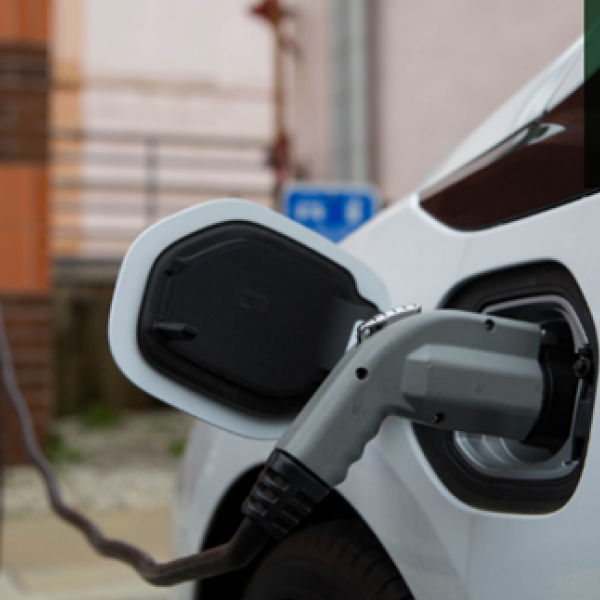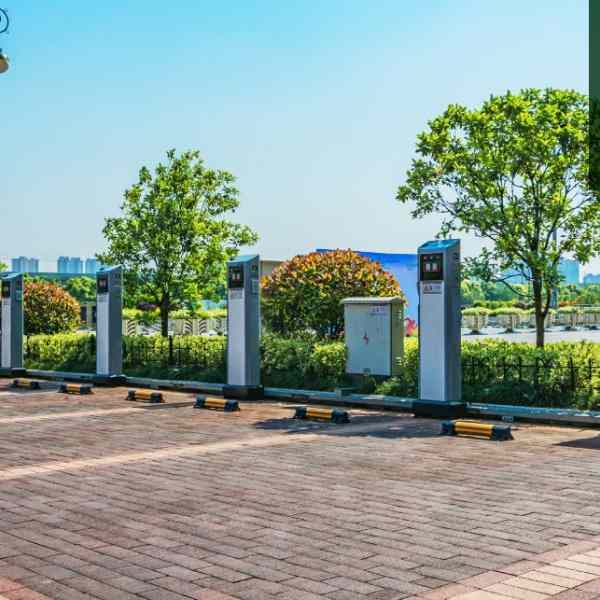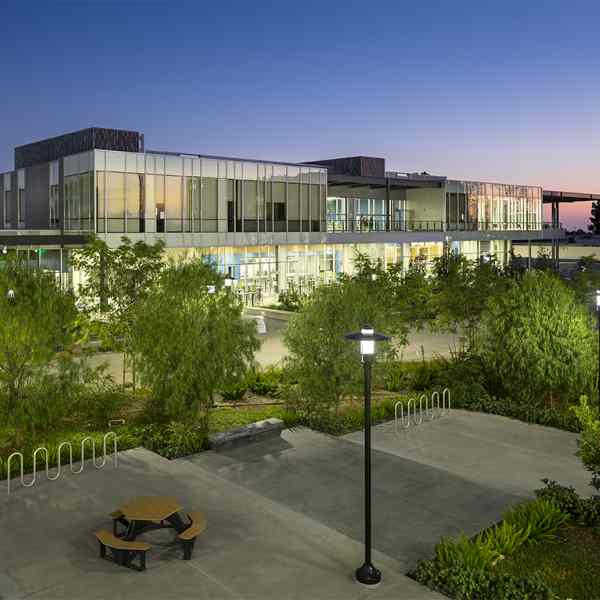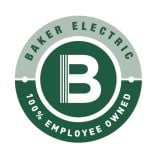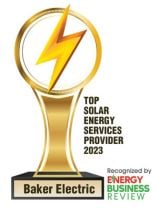EV Charging
Baker Electric EV Charging Infrastructure Group is the Strategic Partner of Choice for those ventures enabling the Future of Electrified Transportation, leveraging its 85 years of experience and reputation in Electrical Contracting Innovation throughout Southern California
Since 2010, Baker Electric has been installing Commercial and Residential EVSE (Electric Vehicle Supply Equipment) units – more commonly known as “chargers”. We have installed over 750 electric vehicle charging stations throughout Southern California in the last 30 months. If you need 1 or 100+ stations, Baker is your solutions provider
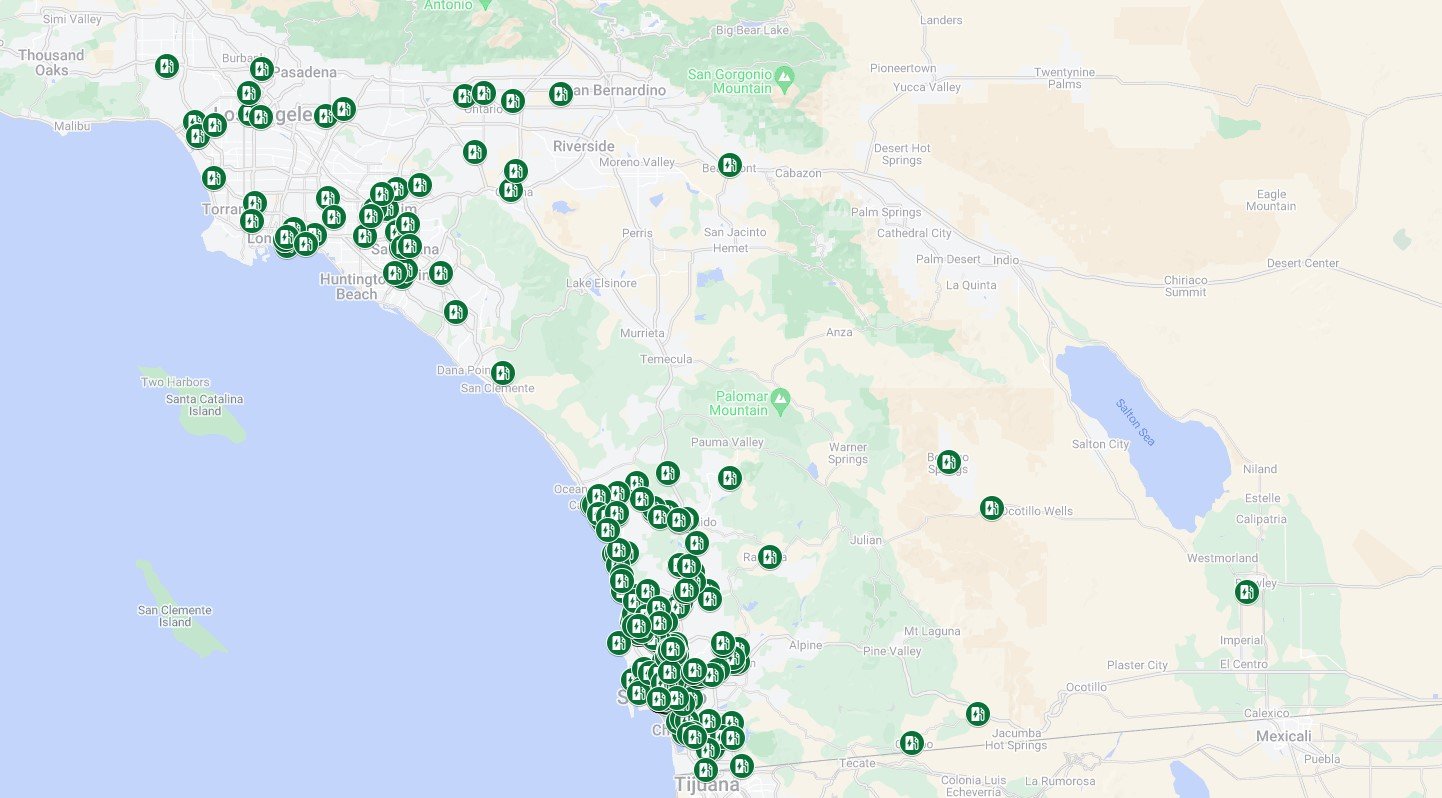
WHAT WE DO
MORE THAN 1O YEARS OF EV CHARGING EXPERIENCE
300+ EV CHARGING PROJECTS AND GROWING
MANUFACTURER-TRAINED INSTALLATION
GROWING ECO-SYSTEM OF STRATEGIC PARTNERS
WE DELIVER ENERGY THROUGH PEOPLE
For over 85 years, Baker Electric has been widely recognized as one of southern California’s leaders for its innovative and comprehensive portfolio of electrical construction and renewable energy solutions.
GREATER THAN 25 EVITP CERTIFIED ELECTRICIANS
EV Charging-as-a-Service (CaaS)
Empower your electric vehicle future with our expert contractor services! We specialize in seamless EV charging solutions, from design to procuring the necessary hardware and establishing fully-functional charging stations, our team offers the solutions, know-how, and assistance you require. Trust our experienced team to electrify your space efficiently and sustainably. Drive towards a greener tomorrow with us!
WHAT IS EV CaaS?
EV Charging as a Service (EV CaaS) offers an all-inclusive package that encompasses EV charging devices, setup, software, upkeep, and support for drivers at a fixed monthly fee. Experience the advantages of integrating EV charging stations on your premises, with Baker handling every facet of the EV charging framework for you.
WHY CHOOSE EV CaaS?
LOW UPFRONT COSTS
Access EV charging facilities with an affordable monthly fee, bypassing hefty initial expenses.
SAVE ON CAPEX
Allocate yearly OpEx funds towards your charging setup.
STEADY COSTS
A bundled monthly subscription covers operational and maintenance costs, curbing unexpected expenses.
ADAPTABLE
Evolve your EV charging setup as your needs change.
MINIMAL RISK
Baker ensures overhead stays low by overseeing station monitoring, network functions, driver assistance, and maintenance.
TECH REFRESH
Ensure your stations remain up-to-date with upgrades available after each contract period.
HOW IT WORKS
Our experts will work with you and provide the best solution for you based on your business needs and goals. Contact us today for a free consultation.
BRANDS WE WORK WITH


EV REBATE PROGRAMS
Learn more about which rebate program can help offset the cost of your installation, saving you thousands:
-
SAN DIEGO
- SDGE PYD fleet, MUD/comm
- CALEVIP 2.0 (GSPP)
- EnerGIIZE
- NEVI (CEC and CalTrans)
-
ORANGE COUNTY
- CALEVIP 2.0 (GSPP)
- SCE Charge ready fleet/comm
- EnerGIIZE
- NEVI (CEC and CalTrans)
-
LOS ANGELES
- SCE Charge Ready fleet/comm
- CALEVIP 2.0 (GSPP)
- EnerGIIZE
- NEVI (CEC and CalTrans)
Projects
WE NEVER STOP IMPROVING
Installing commercial and fleet electrical vehicle charging stations since
EV Projects we have completed throughout Southern California
EV Chargers installed to date
TESTIMONIALS
We Love Our Customers
EV CHARGING FAQ
Installing EV Chargers is not a trivial undertaking. Taking advantage of available incentives is important but understanding the effect the EV Chargers will have on your projected new load is key to understand. Planning for future capacity make this even more critical. Engaging with a partner such as Baker ensures that these aspects of your installation will be considered, leveraging our greater than 10 years of experience delivering these projects.
Incentives can vary from region to region, dependent upon the State, County, and Municipality where the project lies. Working with a partner that has invested in a dedicated team more likely gives you the appropriate visibility into what is available for your project.
Costs for the EV Charging hardware can vary greatly, dependent on several factors, and therefore must be appropriately matched with your specific needs. The dominant factor corelates with power ratings: the higher the charger’s rating (such as with DC Fast Chargers vs Level 2 Chargers) the higher the costs. The higher-powered chargers must be equipped with liquid-cooled cables so they can deliver more power without over-heating and still be light enough for a person to lift and use them. Other contributors to cost include whether a charger can utilize “smart software” that can control the flow of power, the sophistication of its communication system, the number and length of charging cables on a dispenser, and the need for cable retractors and cable management systems. It takes a firm experienced in the wide breadth of the different hardware to discuss what may be best for what you are trying to accomplish with your project. If someone quotes a price per charger without taking into consideration this level of detail, please be wary and attain another competitive quote. Baker would obviously be glad to help you with this.
“Make-ready” is a term that you will hear often when planning your EV Charging project. Between the utility-side infrastructure and the actual chargers, there is additional infrastructure known in the trade as “make-ready”. Although there is no formal definition, it broadly refers to all necessary infrastructure between the utility grid connection and the chargers, such as step-down transformers, electrical service panels, conduit, conductors, and switchgear and power conditioning units, mounting pads or brackets, and other such elements. As you might imagine, the make-ready component of any project can vary widely because of the wide variance of requirements for any specific site. Make-ready costs are typically a large percentage of the capital costs of an installation, as high as 30-40%.
Baker has experience with a broad range of EV Charging projects from small to large, Level 2 to DC Fast Charging, in several challenging environments. These certainly include design build projects.
EVITP stands for Electric Vehicle Installation Technician Program and is the highest Program for training for EV Charging Installation Technicians in the industry. Every Baker Project Manager and technician working on your project is certified in this way and has gone through rigorous training with our vendor relationships such as ChargePoint and others.
A necessary yet complex, inconsistent, and expensive set of requirements has to do with ADA requirements for public chargers and their parking spaces. I(n its current state, ADA compliance is federally required but locally regulated, meaning there is not a single set of standards that govern how to make a site compliant.
Compliance with the American with Disabilities Act (ADA) is a critical but quite often overlooked component of the physical layout and design of an EV Charger project. The incorrect design of lack of attention to detail could cause significant delays or cost overruns of a project that could have been easily avoided. Baker has extensive experience with a broad scope of projects and can pre-see the challenges and therefore avoid many of the pitfalls of ADA compliance.
Developing an EV Charging Project is a big deal, and you should look to partner with a contractor who realizes how important it is now and in the future for you, for your customers, employees, or homeowners, and for the environment. This should not be simply some guy who does this, but an established firm that has been and will be there to stand by its work and deliver a solution. A firm that has a dedicated EV Infrastructure team will have the perspective and resources to educate you as necessary on the alternatives available, be knowledgeable on the incentives available, help my work through which type of charger is best for your application, and get you the very best price based on his industry relationships.
Without the commitment from such a team, this would be a challenge.
Absolutely! Either concurrently with the EV Charger installation or planned at some point in the future, Baker has dedicated experts in commercial solar and energy storage that can “fuel” your EV Chargers in the most “green” sustainable way, designing and recommending the optimal solution to meet your needs.
The length of time it takes to charge an Electric Vehicle from pretty much empty to pretty much full depends on the capacity of the battery inside the vehicle and the discharge rate of the charger. Most chargers in common use are either Level 2 or Level 3 / DC Fast Chargers. DC Fast Chargers are designed to do simply that, charge a vehicle as quickly as possible by the accelerated transfer of electrical energy from the source to the vehicle battery, usually in 30 minutes. Level 2 chargers allow a more deliberate flow of electricity, and therefore take longer to fuel the vehicle, perhaps 4 to 5 hours. Load sharing in a bank of EV Chargers may lengthen these times, as the electricity flowing to any one vehicle may be curtailed in order to “share” the load, based on the total amount of electricity available to the bank, the number of vehicles charging in the bank, and the level of charge of each vehicle charging in the bank.
DC Fast Chargers are certainly becoming more popular, and enable just that, accelerated charging to a completely full state in a relatively short amount of time, say 30 minutes or less. As a result, they are usually found in Highway Electrification projects or where private charging is attempting to attract a premium clientele to a premium priced experience. DC Fast Charging can make sense for your property if your business case warrants it. Otherwise, Level 2 Charging may be the solution where EV charging is provided as an added benefit to either an employee or MDU resident. In that case, the car is parked and charging for an extended period or may simply be “topping off”.
Absolutely! There exist many reasons and therefore business models for a property site owner to develop an EV Charging station. Perhaps he is a restaurant owner that wants to offer free charging to attract premium clients. Or an employer that wants to retain his employees by offering them the ability to charge their vehicles during the workday. Even a solar homeowner that would like to invite his neighbors to charge their cars (perhaps even for a fee) consuming some of the excess solar power he is producing during the day. In fact, most public charging stations you see charge for the electricity (and in some cases the time) that is used to charge your vehicle. Many EV Charging vendors also provide these charging systems that enable the monetization of your charging station.
Baker does not participate in these systems but can introduce you to a Strategic Partner who may best suit your needs.
A contractor experienced in EV Charging infrastructure should be able to give you the appropriate guidance on the following issues that you may be challenged with:
- Which Charger or Software Platform you should select given your objectives
- How many chargers would you need for your facility and the optimal location and placement given ADA standards as well as others
- Demonstrate examples for other projects he has successfully delivered that profile and look like what you are considering
- The largest and smallest jobs he has performed
- Introductions to strategic partners with financing options if necessary
- Introductions to strategic partners that collect and trade in carbon credits and can explain how all of that would benefit you
- How he is differentiated from the common contractor who can install EV Charging
A contractor experienced in EV Charging infrastructure should be able to give you the appropriate guidance on the following issues that you may be challenged with:
- Which Charger or Software Platform you should select given your objectives
- How many chargers would you need for your facility and the optimal location and placement given ADA standards as well as others
- Demonstrate examples for other projects he has successfully delivered that profile and look like what you are considering
- The largest and smallest jobs he has performed
- Introductions to strategic partners with financing options if necessary
- Introductions to strategic partners that collect and trade in carbon credits and can explain how all of that would benefit you
- How he is differentiated from the common contractor who can install EV Charging
Absolutely! There exist many reasons and therefore business models for a property site owner to develop an EV Charging station. Perhaps he is a restaurant owner that wants to offer free charging to attract premium clients. Or an employer that wants to retain his employees by offering them the ability to charge their vehicles during the workday. Even a solar homeowner that would like to invite his neighbors to charge their cars (perhaps even for a fee) consuming some of the excess solar power he is producing during the day. In fact, most public charging stations you see charge for the electricity (and in some cases the time) that is used to charge your vehicle. Many EV Charging vendors also provide these charging systems that enable the monetization of your charging station.
Baker does not participate in these systems but can introduce you to a Strategic Partner who may best suit your needs.
The length of time it takes to charge an Electric Vehicle from pretty much empty to pretty much full depends on the capacity of the battery inside the vehicle and the discharge rate of the charger. Most chargers in common use are either Level 2 or Level 3 / DC Fast Chargers. DC Fast Chargers are designed to do simply that, charge a vehicle as quickly as possible by the accelerated transfer of electrical energy from the source to the vehicle battery, usually in 30 minutes. Level 2 chargers allow a more deliberate flow of electricity, and therefore take longer to fuel the vehicle, perhaps 4 to 5 hours. Load sharing in a bank of EV Chargers may lengthen these times, as the electricity flowing to any one vehicle may be curtailed in order to “share” the load, based on the total amount of electricity available to the bank, the number of vehicles charging in the bank, and the level of charge of each vehicle charging in the bank.
“Make-ready” is a term that you will hear often when planning your EV Charging project. Between the utility-side infrastructure and the actual chargers, there is additional infrastructure known in the trade as “make-ready”. Although there is no formal definition, it broadly refers to all necessary infrastructure between the utility grid connection and the chargers, such as step-down transformers, electrical service panels, conduit, conductors, and switchgear and power conditioning units, mounting pads or brackets, and other such elements. As you might imagine, the make-ready component of any project can vary widely because of the wide variance of requirements for any specific site. Make-ready costs are typically a large percentage of the capital costs of an installation, as high as 30-40%.
DC Fast Chargers are certainly becoming more popular, and enable just that, accelerated charging to a completely full state in a relatively short amount of time, say 30 minutes or less. As a result, they are usually found in Highway Electrification projects or where private charging is attempting to attract a premium clientele to a premium priced experience. DC Fast Charging can make sense for your property if your business case warrants it. Otherwise, Level 2 Charging may be the solution where EV charging is provided as an added benefit to either an employee or MDU resident. In that case, the car is parked and charging for an extended period or may simply be “topping off”.

